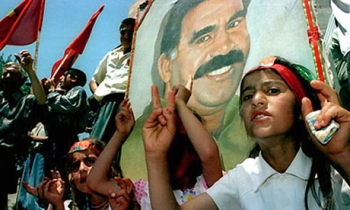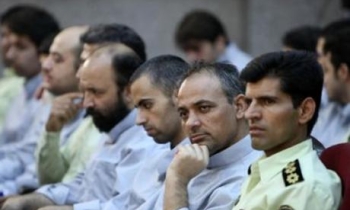The International Press Institute (IPI) has called for an end to violence, harassment, intimidation and other pressure on journalists and media outlets in Ukraine. IPI Executive Director Alison Bethel McKenzie, in an open letter to authorities in Crimea, urged them to bring to justice those responsible for a number of recent incidents in the region and to end efforts to block media outlets from broadcasting.
She also called for journalists seeking to cover Sunday's referendum on Crimea’s status to be allowed to do so without restrictions and without regard for their origin or media affiliation. The upcoming referendum "can hardly be said to represent democracy if violence and fear effectively stifle any semblance of an honest discussion of the issue", Bethel McKenzie wrote, and she reminded authorities in Crimea that they have "an obligation under the Republic’s Constitution to uphold democracy, the rule of law and human rights".
She added: "The legitimacy of the actions Crimea takes in determining its future – and the manner in which history will view those actions – depends wholly on the degree to which your government respects democratic values. We therefore urge you to take ... steps to uphold those values, particularly the fundamental human right to share and receive information."
Organization for Security and Co-operation in Europe (OSCE) Representative on Freedom of the Media Dunja Mijatovic, in statements issued Opens external link in new windowFriday and Opens external link in new windowSaturday following a visit to the region, described the situation in Crimea as a "crisis" in which media freedom was "under siege". The New York-based Committee to Protect Journalists (CPJ) on Tuesday issued a statement cataloguing a litany of Opens external link in new windowdetentions, assaults and threats against journalists in the region and seizures of their equipment. The statement also listed a number of examples of censorship of broadcasters.
Bethel McKenzie Thursday also criticised a demand by Ukraine’s National Television and Radio Broadcasting Council on cable operators to stop carrying signals from a number of Russian state-controlled television channels. Opens external link in new windowAccording to the BBC, the regulator issued the order on Tuesday in response to a call from Ukraine’s National Security and Defence Council, which said that the Russian channels – which have portrayed Ukraine as a country overrun by "neo-Nazis" and on the brink of chaos and collapse – presented a threat to Ukraine’s “national security".
"Pressure on media and censorship is unacceptable no matter where it originates – from Simferopol, from Kiev or from Moscow," Bethel McKenzie said. "Authorities across the region need to do a much better job of respecting media independence and ensuring that citizens enjoy unfettered access to information."









